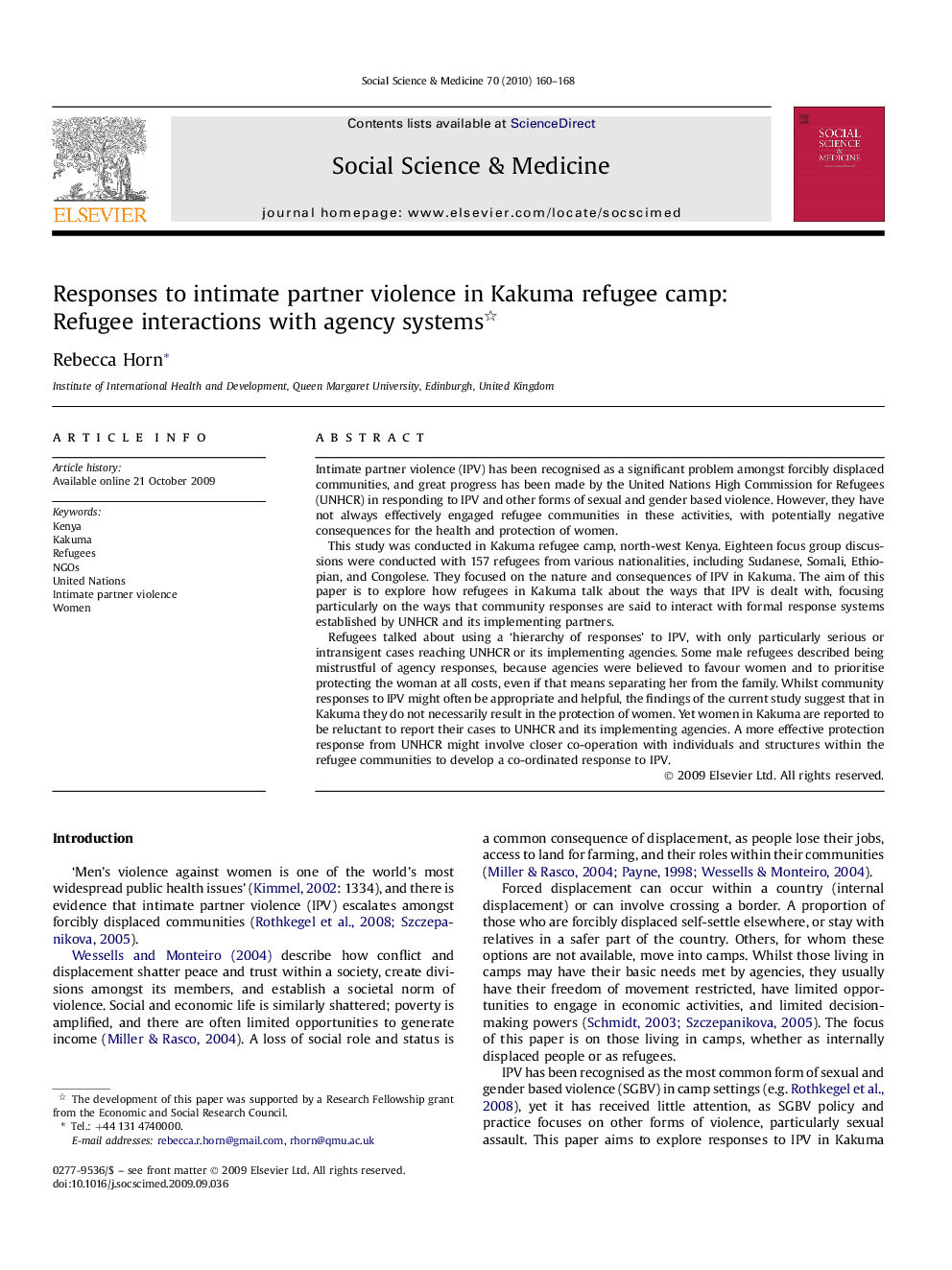| کد مقاله | کد نشریه | سال انتشار | مقاله انگلیسی | نسخه تمام متن |
|---|---|---|---|---|
| 953261 | 927575 | 2010 | 9 صفحه PDF | دانلود رایگان |

Intimate partner violence (IPV) has been recognised as a significant problem amongst forcibly displaced communities, and great progress has been made by the United Nations High Commission for Refugees (UNHCR) in responding to IPV and other forms of sexual and gender based violence. However, they have not always effectively engaged refugee communities in these activities, with potentially negative consequences for the health and protection of women.This study was conducted in Kakuma refugee camp, north-west Kenya. Eighteen focus group discussions were conducted with 157 refugees from various nationalities, including Sudanese, Somali, Ethiopian, and Congolese. They focused on the nature and consequences of IPV in Kakuma. The aim of this paper is to explore how refugees in Kakuma talk about the ways that IPV is dealt with, focusing particularly on the ways that community responses are said to interact with formal response systems established by UNHCR and its implementing partners.Refugees talked about using a ‘hierarchy of responses’ to IPV, with only particularly serious or intransigent cases reaching UNHCR or its implementing agencies. Some male refugees described being mistrustful of agency responses, because agencies were believed to favour women and to prioritise protecting the woman at all costs, even if that means separating her from the family. Whilst community responses to IPV might often be appropriate and helpful, the findings of the current study suggest that in Kakuma they do not necessarily result in the protection of women. Yet women in Kakuma are reported to be reluctant to report their cases to UNHCR and its implementing agencies. A more effective protection response from UNHCR might involve closer co-operation with individuals and structures within the refugee communities to develop a co-ordinated response to IPV.
Journal: Social Science & Medicine - Volume 70, Issue 1, January 2010, Pages 160–168